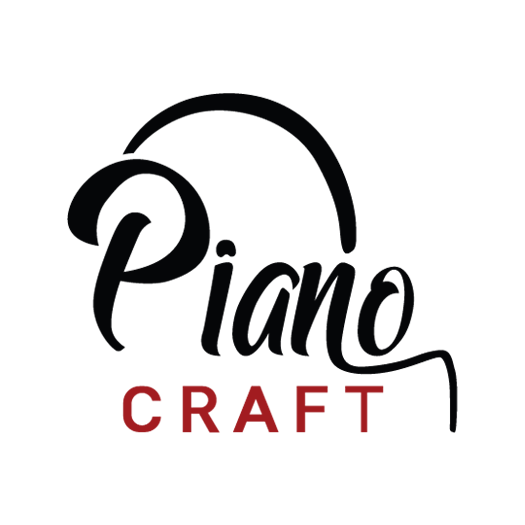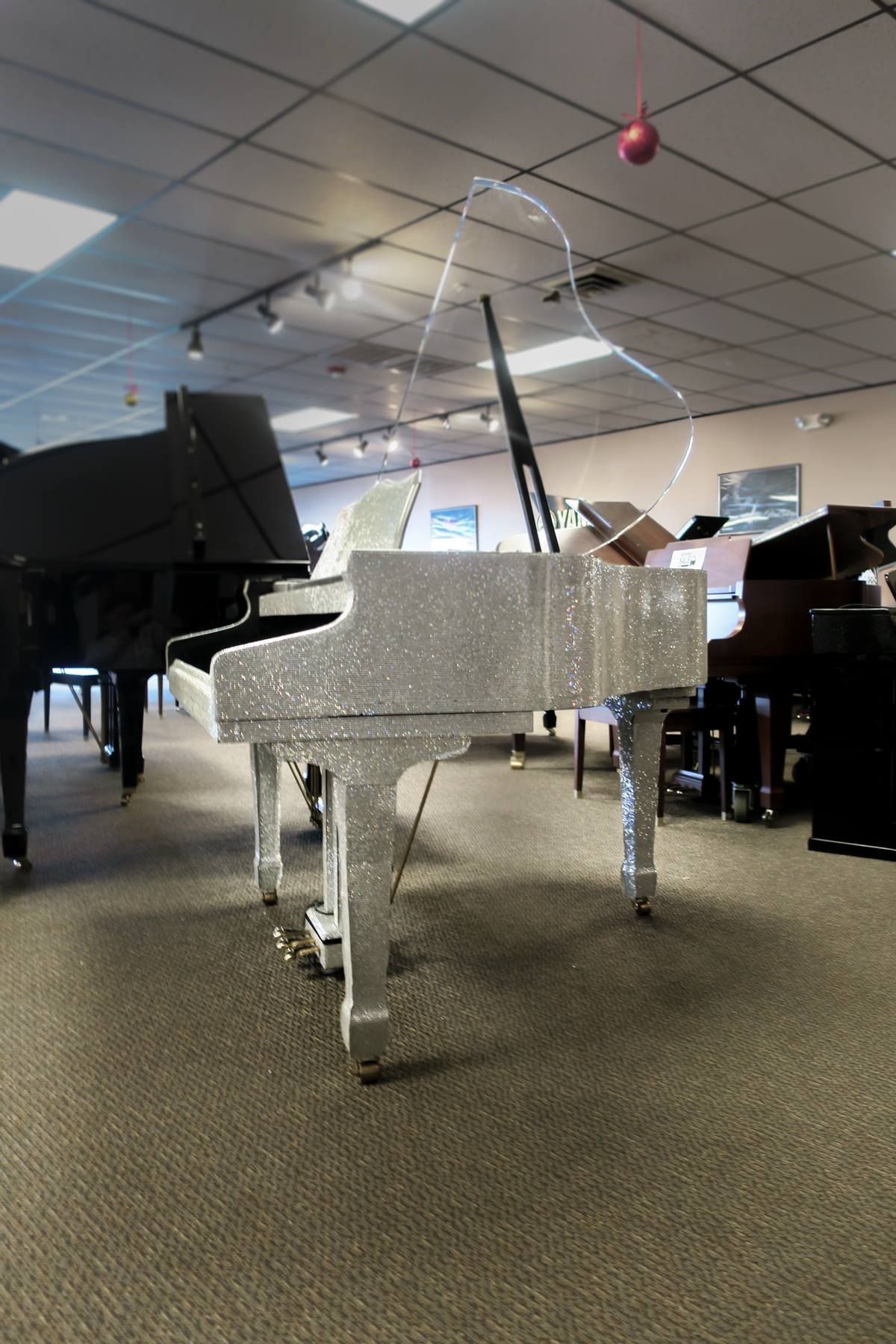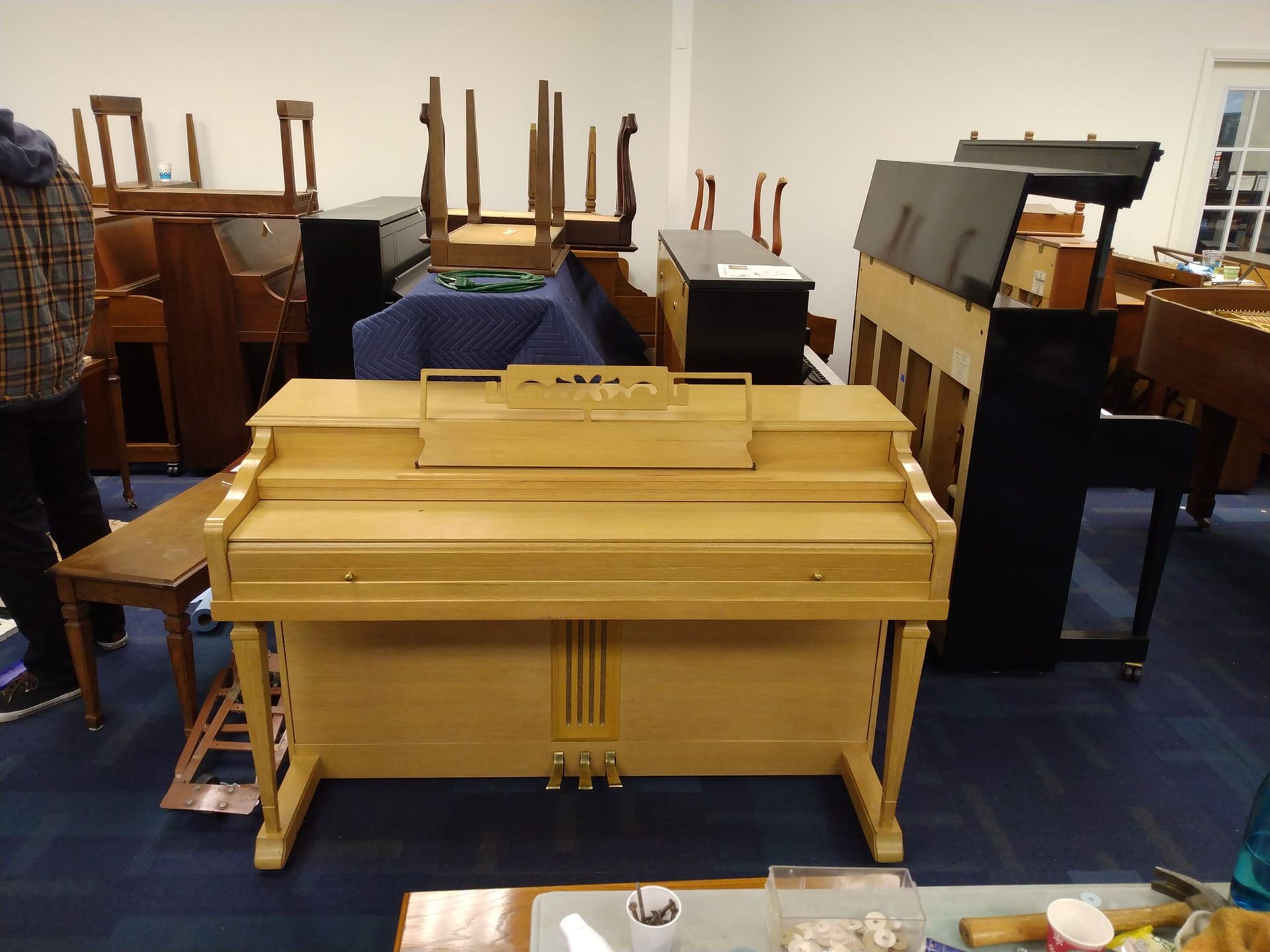Buyer’s Guide
What to look for in your piano or keyboard
For the average person, shopping for a piano can be a confusing task.
- Why does one piano cost more than another?
- What brand is better?
We hear questions like these every day and we want you to be able to make an educated decision.
By offering you some insight from industry experts, we hope to arm you with the knowledge to ask the right questions before ever visiting the showroom.
Buyer’s Guide
Grand Piano
Grand pianos come in a variety of sizes and are measured from the very front of the keys to the back of the rim. The term “baby grand” refers to a grand that is 4'-6' in length and concert grands are 7'- 9' in length.
Depending on the manufacturer, there are many different sizes between the two extremes, and they often have different names attributed to them.
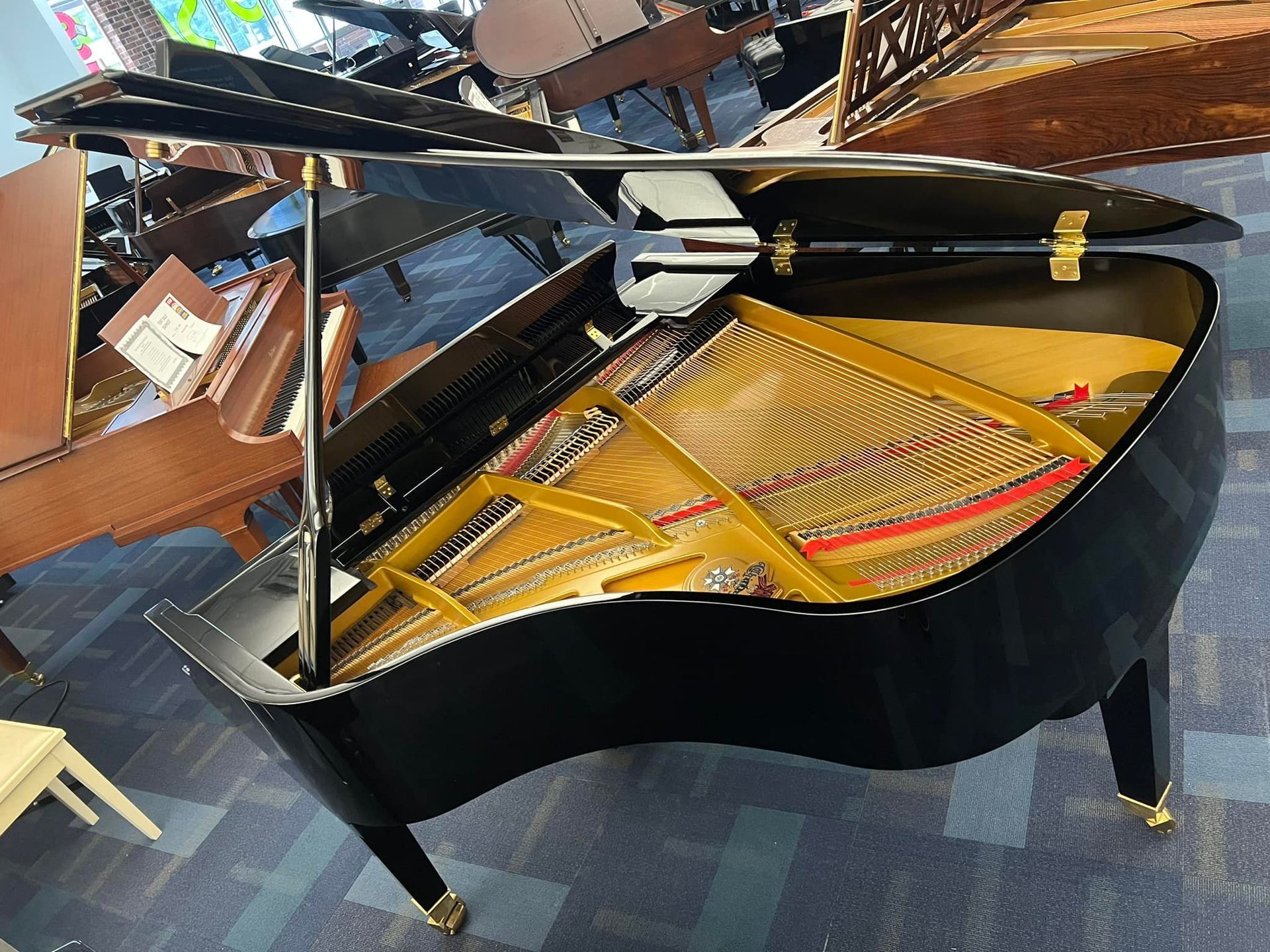
Should I buy a grand or vertical piano?
A fine quality grand piano should be considered if space and budget permit. Because of the design, a grand piano has certain inherent advantages over a vertically configured piano. The gravity-type action of a fine grand piano allows for faster repetition of notes and for better, subtler control of expression and tone than that of a vertical action piano. the horizontal construction and the shape of the soundboard allow the tone to develop in an open transparent manner. Musically, a fine grand piano is superior to a vertical piano. Aesthetically, it can be an elegant and dramatic addition to any home decor.
Space and budget considerations, however, are often major considerations. Not all grands are created equal. A first-class vertical piano is an excellent musical instrument, and will outperform and outlast a poorly made, inexpensive, small grand. Vertical pianos also come in a variety of furniture styles and finishes. They will also enhance your home’s decor, and will take a fraction of the space of even a small grand.
There is an undeniably strong correlation between music education and the development of skills that children need to become successful in life, self-discipline, patience, sensitivity, coordination, and the ability to memorize and concentrate are all enhanced by the study of music. These skills will follow your child throughout whatever path these choose in life.
The piano is an excellent first instrument capable of providing your child (and yourself) lifelong joy, satisfaction, and accomplishment. No other instrument matches the pianos broad musical applications even if your child subsequently chooses to play another musical instrument. The concept of melody, rhythm and study of harmony acquired in studying the piano will reap handsome rewards.
Acoustic vs. Digital
A fine quality grand piano should be considered if space and budget permit. Because of the design, a grand piano has certain inherent advantages over a vertically configured piano. The gravity-type action of a fine grand piano allows for faster repetition of notes and for better, subtler control of expression and tone than that of a vertical action piano. the horizontal construction and the shape of the soundboard allow the tone to develop in an open transparent manner. Musically, a fine grand piano is superior to a vertical piano. Aesthetically, it can be an elegant and dramatic addition to any home decor.
Space and budget considerations, however, are often major considerations. Not all grands are created equal. A first-class vertical piano is an excellent musical instrument, and will outperform and outlast a poorly made, inexpensive, small grand. Vertical pianos also come in a variety of furniture styles and finishes. They will also enhance your home’s decor, and will take a fraction of the space of even a small grand.
There is an undeniably strong correlation between music education and the development of skills that children need to become successful in life, self-discipline, patience, sensitivity, coordination, and the ability to memorize and concentrate are all enhanced by the study of music. These skills will follow your child throughout whatever path these choose in life.
The piano is an excellent first instrument capable of providing your child (and yourself) lifelong joy, satisfaction, and accomplishment. No other instrument matches the pianos broad musical applications even if your child subsequently chooses to play another musical instrument. The concept of melody, rhythm and study of harmony acquired in studying the piano will reap handsome rewards.
New vs. Used
There are several factors to consider before making your decision. Unlike digitals, acoustic pianos are an investment and will hold their value over the years.
The benefit of choosing a used piano is a lower price tag. When shopping for a used instrument at Piano Craft you can rest assured that our expert technicians have repaired and cleaned the pianos inside and out and it will have a full warranty. We have four piano technicians on staff and we specialize in making used pianos look and feel like new. If a student plans on taking the piano seriously and if your budget can afford it, go ahead with the new piano purchase. This makes the learning process more enjoyable for the student and the family can take pride in their beautiful new piano.
The life of a quality piano is well over 100 years, and there are many good deals to be found in the used piano market. The best way to find the piano for you is to consider your budget, what type of piano you want and what the instrument will be used for. With maintaining your piano with regular tunings, you can be confident that it will last for generations to come.
